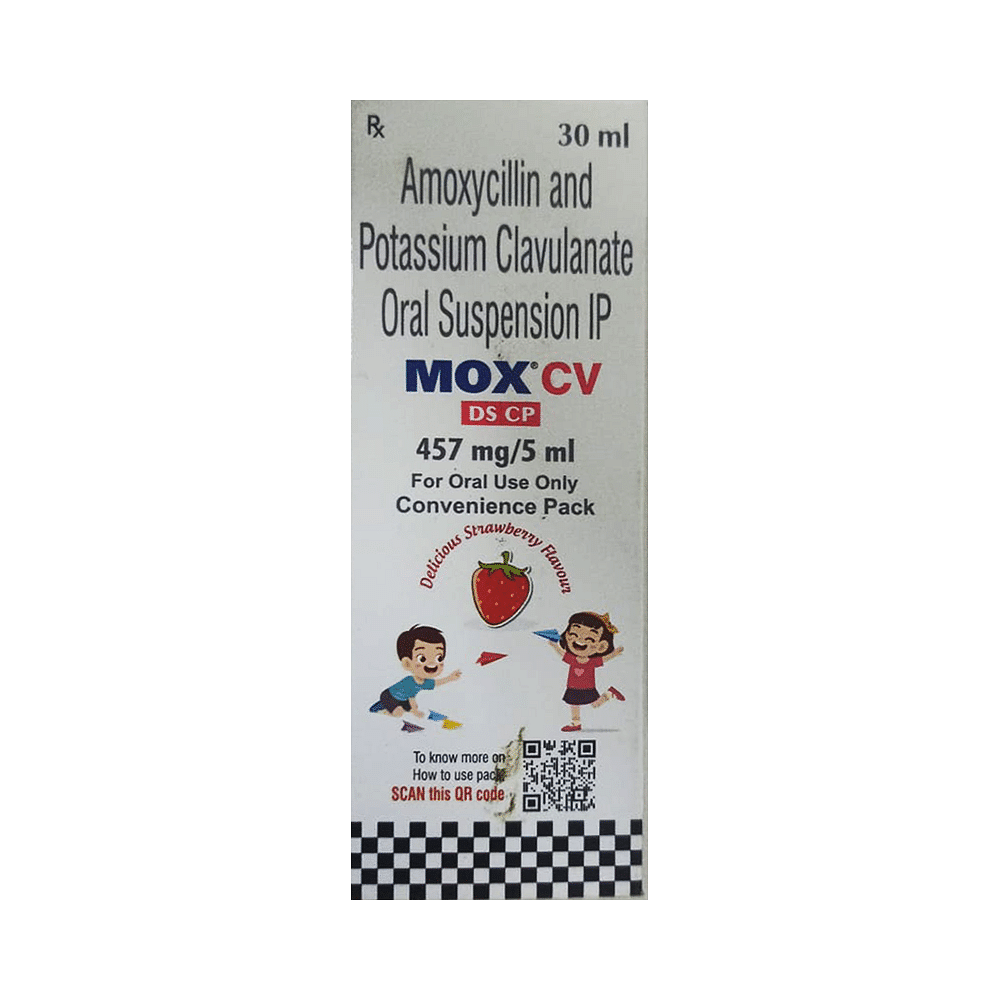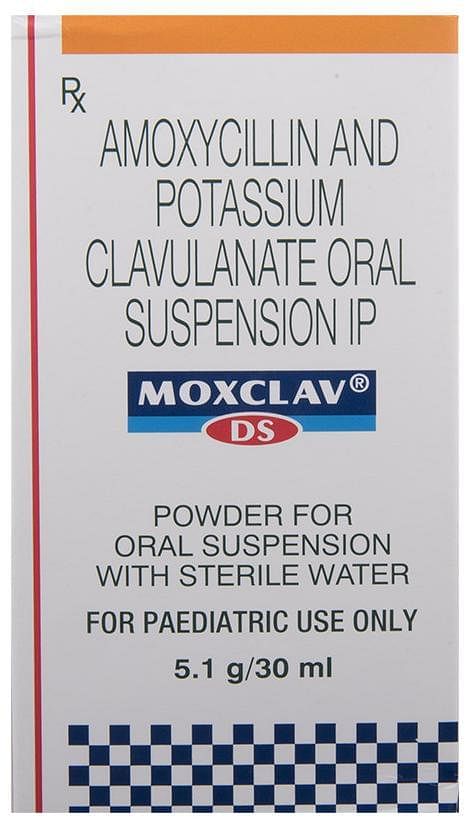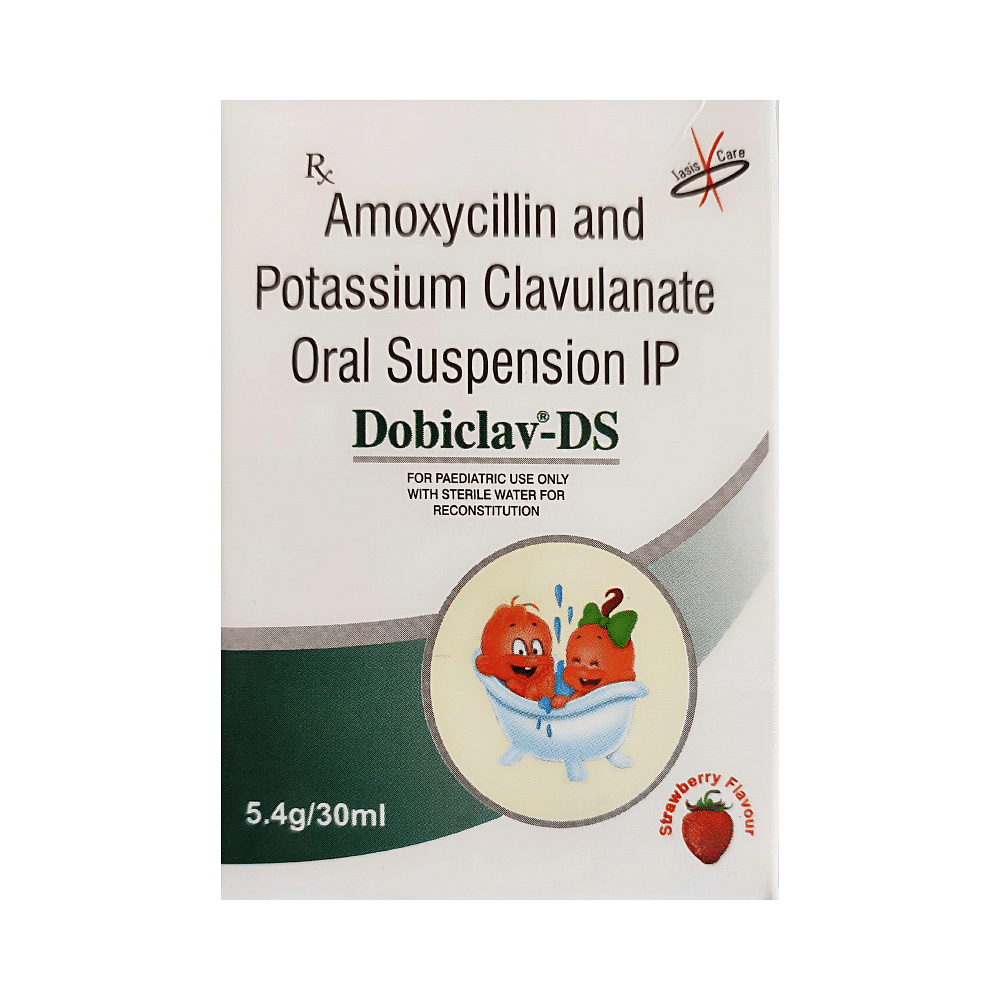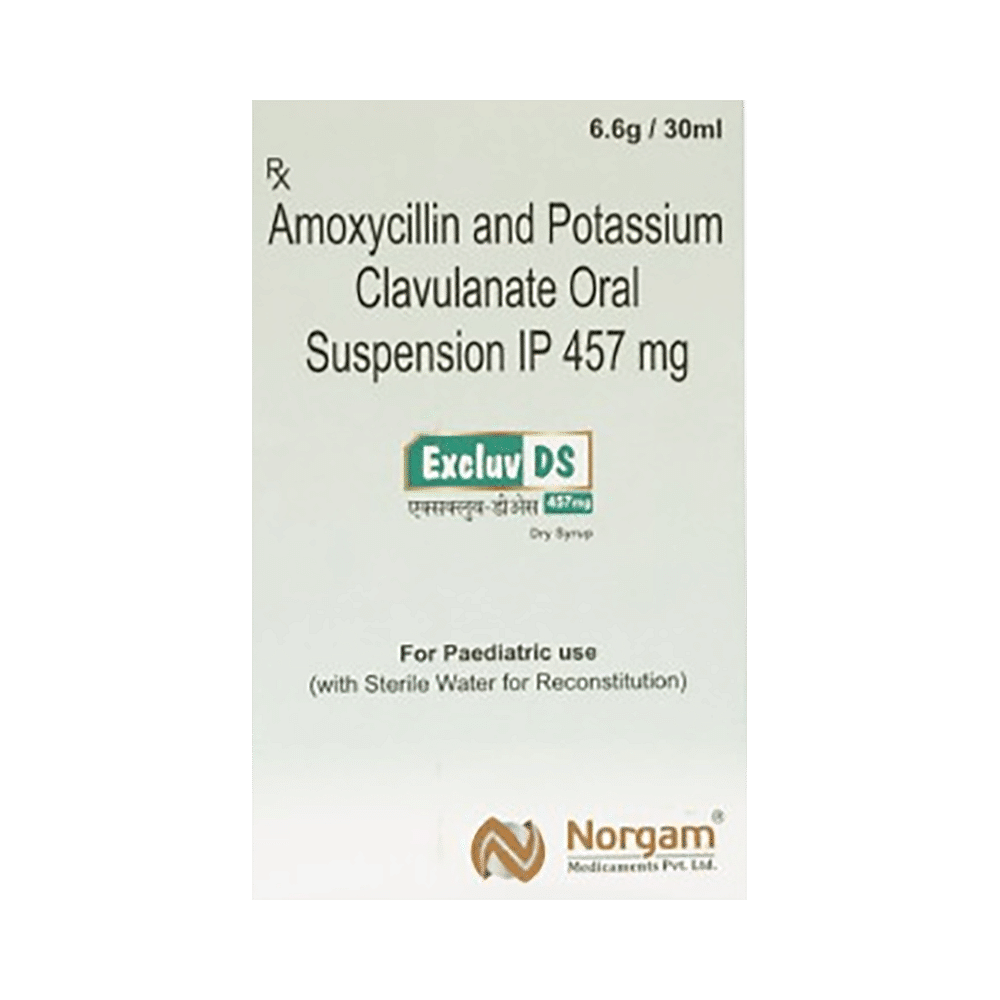
Claviox 457 Dry Syrup
Manufacturer
Fawn Incorporation
Salt Composition
Amoxycillin (400mg) + Clavulanic Acid (57mg)
Key Information
Short Description
Claviox 457 Dry Syrup is an antibiotic medicine that helps treat bacterial infections of the ear, nose, throat, chest, lungs, teeth, skin, and urinary tract.
Dosage Form
Oral Suspension
Introduction
Claviox 457 Dry Syrup is an antibiotic medicine that helps treat bacterial infections of the ear, nose, throat, chest, lungs, teeth, skin, and urinary tract. It is capable of killing bacteria that have become resistant to other therapies and thus also helps treat tuberculosis that is resistant to other treatments.
Directions for Use
Your child must complete the entire course of antibiotics. Stopping too soon may cause the bacteria to multiply again or cause another infection.
How it works
Claviox 457 Dry Syrup is an antibiotic. It has two active agents amoxycillin and clavulanic acid. Amoxycillin works by preventing the formation of the bacterial protective covering (cell wall) essential for the survival of the bacteria. Whereas clavulanic acid serves a special purpose of inhibiting an enzyme (beta-lactamase) that is produced by resistant bacteria. This makes the combination of amoxycillin and clavulanic acid an effective line of treatment for many types of infections.
Quick Tips
Your child must complete the entire course of antibiotics. Stopping too soon may cause the bacteria to multiply again or cause another infection. Your child may have a bitter taste in the mouth after the intake of Claviox 457 Dry Syrup. Eating citrus fruit or sipping plenty of water or fruit juice may help. Encourage your child to drink plenty of water in case diarrhea develops as a side effect. Never give Claviox 457 Dry Syrup until and unless prescribed by the doctor. Do not give Claviox 457 Dry Syrup to treat common cold and flu-like symptoms caused by viruses. Never save medicine for future illnesses. Check ‘expiry’ before giving Claviox 457 Dry Syrup to your child. Immediately discard all the expired medicines. Stop Claviox 457 Dry Syrup immediately if your child develops an itchy rash, facial swelling, or breathing difficulty. Report to the doctor without any delay.
Related Medicines

Mox CV DS CP Oral Suspension Delicious Strawberry

Moxclav DS 457mg Oral Suspension

Joymentin DS Oral Suspension

Nojinox Duo Oral Suspension

Aklox-CV Duo Dry Syrup

Moxyvil CV Dry Syrup

Dobiclav-DS Oral Suspension Strawberry

Excluv DS 457mg Dry Syrup

Fealmox CV Forte Oral Suspension

Xclav DS Oral Suspension
Frequently asked questions
Can other medicines be given at the same time as Claviox 457 Dry Syrup?
It is important to inform your child's healthcare provider about any other medications they are taking before starting Claviox 457 Dry Syrup. Check with your child's doctor for advice on administering any medicine to your child, as there may be potential drug interactions or adverse effects.
Can I get my child vaccinated while on treatment with Claviox 457 Dry Syrup?
Generally, antibiotics do not interfere with vaccines and are safe for use after a course of vaccination. However, it's best to consult with your child’s healthcare provider before administering any medicine to your child. Vaccination should be done once your child recovers from the illness.
Which lab tests may my child undergo while taking Claviox 457 Dry Syrup on a long-term basis?
Periodically, during prolonged therapy with Claviox 457 Dry Syrup, your child's doctor might monitor kidney and liver function. This is done for monitoring purposes.
Can I give a higher than the recommended dose of Claviox 457 Dry Syrup to my child?
Giving more than the prescribed dose of Claviox 457 Dry Syrup can increase the risk of side effects. If your child is experiencing symptoms worsening, please contact their doctor for re-evaluation.
Can I stop giving Claviox 457 Dry Syrup to my child when the symptoms are relieved?
No, you should not discontinue treatment with Claviox 457 Dry Syrup until the full course of medication is completed. Even if your child seems better, some symptoms may improve before the infection is completely cured. The medication may still be providing beneficial effects.
Can the use of Claviox 457 Dry Syrup cause diarrhea?
Yes, Claviox 457 Dry Syrup can sometimes lead to diarrhea. This is because antibiotics are designed to kill harmful bacteria. Additionally, they may affect the balance of good and bad bacteria in your child's stomach, leading to this side effect. Encourage your child to drink plenty of fluids if they experience diarrhea.
Do all viral common colds result in secondary bacterial infection?
Most viral infections don’t trigger a secondary bacterial infection. Antibiotics should only be used after consultation with your child's doctor, as it can increase the risk of side effects if used for viral infections.
The mucus coming out of my child’s nose is yellow-green. Is it a sign of a bacterial infection?
Yellow or green mucus in the nose doesn't always indicate a need for antibiotics. During a common cold, nasal mucus may thicken and change from clear to yellow or green. This typically lasts 7-10 days.
Is there any sign which shows that my child needs immediate medical attention?
You should contact your child’s doctor immediately if they experience severe allergic reactions (difficulty breathing, skin rashes), gastrointestinal issues (diarrhea), or liver damage (weakness, paleness, vomiting). These side effects are serious and require expert medical intervention. While rare, these can be life-threatening.


